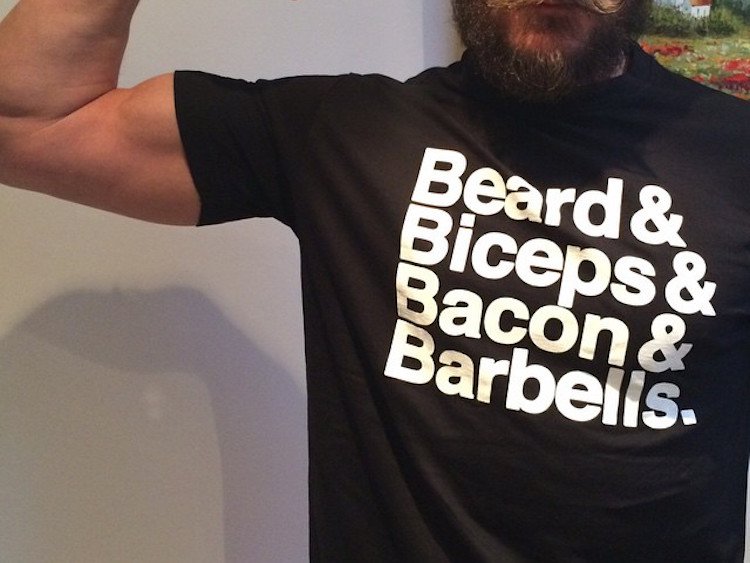“Straight acting” gay men are 37% more likely to believe feminine gays give the community a bad name, study finds.
By Josh Lee

Results from a European award-winning study released today found that those who had not experienced homophobia in school were more than twice as likely to have used the phrase ‘straight acting’ to describe themselves, with 56% of those who indicated that they had not experienced homophobia in school reporting that they have used the term “straight acting”, compared to 25% of those who indicated that they had experienced homophobia in school.
Respondents who self-defined as “straight acting” were also:
- 37% more likely to agree with the statement ‘Feminine gay men give gay men like me a bad reputation’ than those who did not.
- 33% less likely to indicate that they have faced homophobia or discrimination on the basis of their sexuality in the last 5 years.
- 35% more likely to agree with the statement, ‘I identify more with the heterosexual community than with the gay community.’
The award-winning study surveyed 280 gay men based in the United Kingdom and the U.S. state of California. The findings suggest that gay men who had described themselves as “straight acting” were less likely to have directly experienced homophobia, less likely to see issues like discrimination as something that could personally effect them, and in turn, less likely to challenge homophobia when they see it. Meanwhile, those who had directly experienced the consequences of homophobia and discrimination were more likely to take an active role in trying to improve society’s perceptions of their community, fighting to change the value attached to their group rather than dissociating themselves from it.
Cal Strode, who authored the study, said:
“We all strive to have a positive self-conception, we want to believe that any group we belong to is positively distinct from others. Social Identity Theory suggests that if we feel this is not the case, we will either be compelled to try to migrate to another group with perceived higher status, or fight to change the values attached to the group we belong to.
He added: “This certainly seems to chime with a lot of what we see in the gay community today. Feminine gay men are caught in the crossfire of a battle that self described ‘straight acting’ gay men are having with themselves. The way gay men market themselves is more visible than ever before because of the rise of apps like Grindr. This brings things like femphobia (and racism) to the surface, and we need to take every opportunity to challenge that.
“It’s not helpful to demonise people who use the term ‘straight acting’, but we should challenge them to realise when they’re speaking from a place of internalised homophobia or a position of ‘pass privilege’. We can’t expect everyone to have an academic understanding of oppression, privilege and the role they themselves are playing in things, so we have to find constructive ways to start conversations and challenge people in ways that brings them along with us”
While the findings make for uncomfortable reading, Fernando Lopez, LGBT History expert and Director at San Diego Pride believes they are not exclusive to the gay community: “This is actually common across socially stigmatised groups. You often see examples of attempted identity migration over to a group with the perceived higher status, though this is only really an option when the boundaries between the two groups are perceived to be permeable for those who can ‘pass’,” he explained.
“For example, we might see Latino people changing their names (something we call “whiting-out your name” here in California). I know of a lot of people who go by John, for example, whereas their real name is Juan, or Michael when their real name is Miguel. Mine would be Frank or something for example –but I like Fernando!
“If people expressing these views can pass as straight in their day to day lives, then they don’t have to deal with that same kind of discrimination. But for the people who live a different kind of life and have more of a struggle for standing out as not masculine, it means more to them to become activists and to do something: they have seen the oppression in a way that somebody who can pass as straight never does.
“A big part of homophobia, internalized and otherwise, rests in chauvinism and ‘femophobia’: the fear of all things feminine and being feminine, because it is seen as weak. This isn’t a new thing, but it’s certainly more visible and pervasive than ever before because of the rise of apps like “Grindr” and other dating apps where we can see the way people are marketing themselves. The trend of some gay men excessively using hyper-masculine language is symptomatic of this–terms like “dude” and “bro” etc.
“Interestingly, because the media would initially only portray gay men as this sort of hyper-effeminate caricature, gay men of the ’70s rebelled against that and that’s where the bodybuilding movement came from. That’s where the whole grungy men of the 70’s with beards and bushy hair etc originated. They all wore flannel and work boots etc. That style was very much an intentional decision to hyper-masculinise the gay male community, so as to push-back against the heterosexual male run media. Today it seems that more people are pushing back against themselves.”
Read more
X Factor contestant Freddy Parker’s bulge may have broken the internet: WATCH
Leo Kalyan releases stunning video for new single, ‘F*cked Up’: WATCH
